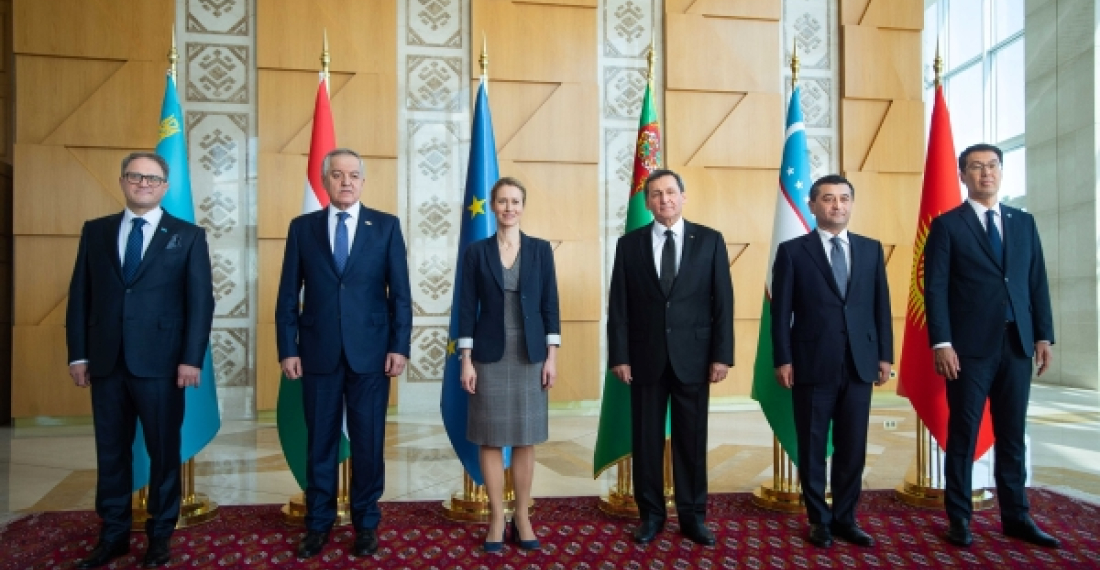On 27 March 2025, the Foreign Ministers of the Republic of Tajikistan, Turkmenistan, the Republic of Uzbekistan, the Deputy Foreign Ministers of the Republic of Kazakhstan and the Kyrgyz Republic, as well as the European Union’s High Representative for Foreign Affairs and Security Policy Kaja Kallas held their 20th European Union-Central Asia Ministerial meeting in Ashgabat in Turkmenistan. The ministers discussed the preparations for the organisation of the first EU-Central Asia Summit on 4 April 2025 in Samarkand in Uzbekistan, which will demonstrate their commitment to deepening ties with the EU, at the highest level, materialising closer strategic cooperation, and marking an important step in the intensification of EU-Central Asia relations.
In a joint communiqué, the ministers reaffirmed their joint commitment and political willingness to further strengthening their comprehensive partnership with the EU based on shared values and mutual interests, reflected in the ‘Joint Roadmap for Deepening Ties between the EU and Central Asia’ adopted during their last meeting in Luxemburg on 23 October 2023.
They welcomed valuable progress achieved in all five key areas of the Joint Roadmap: inter-regional political dialogue and cooperation; enhancing trade, investment and economic ties; engaging on energy, climate neutral economy and connectivity; addressing common security challenges; and strengthening people-to-people contacts and mobility.
This builds upon the EU-Central Asia high-level regional meetings of the Heads of State of Central Asia and the President of the European Council, held in Astana in 2022 and Cholpon-Ata in 2023.
The ministers reiterated their commitment to work together with the EU for peace, security, promotion of fundamental rights and sustainable development. They reaffirmed their continuing and strong commitment to uphold the UN Charter and the fundamental principles of international law, including UNSC Resolutions 541(1983) and 550(1984), on which the enhancement of EU-Central Asia relations is based, in particular the respect for the independence, sovereignty and territorial integrity of all states, within their internationally recognized borders.
In this context, the hosts Turkmenistan stated that it applies its international commitments in strict accordance with the principles of its permanent neutrality status.
The ministers called for the earliest possible achievement of a comprehensive, just and lasting peace in Ukraine according to the principles of the Charter of the United Nations. They emphasised the need to uphold the principles of the OSCE by the participating states and reconfirmed the obligation of all states to refrain in their international relations from the threat or use of force, to respect international humanitarian law and underlined the need for peaceful resolution of conflicts.
The minsters acknowledged Turkmenistan’s lead in advancing the designation of 2025 as the International Year of Peace and Trust, an initiative adopted by the UN General Assembly. They stressed the importance of international arms control, disarmament and the non-proliferation architecture for global peace and security.






